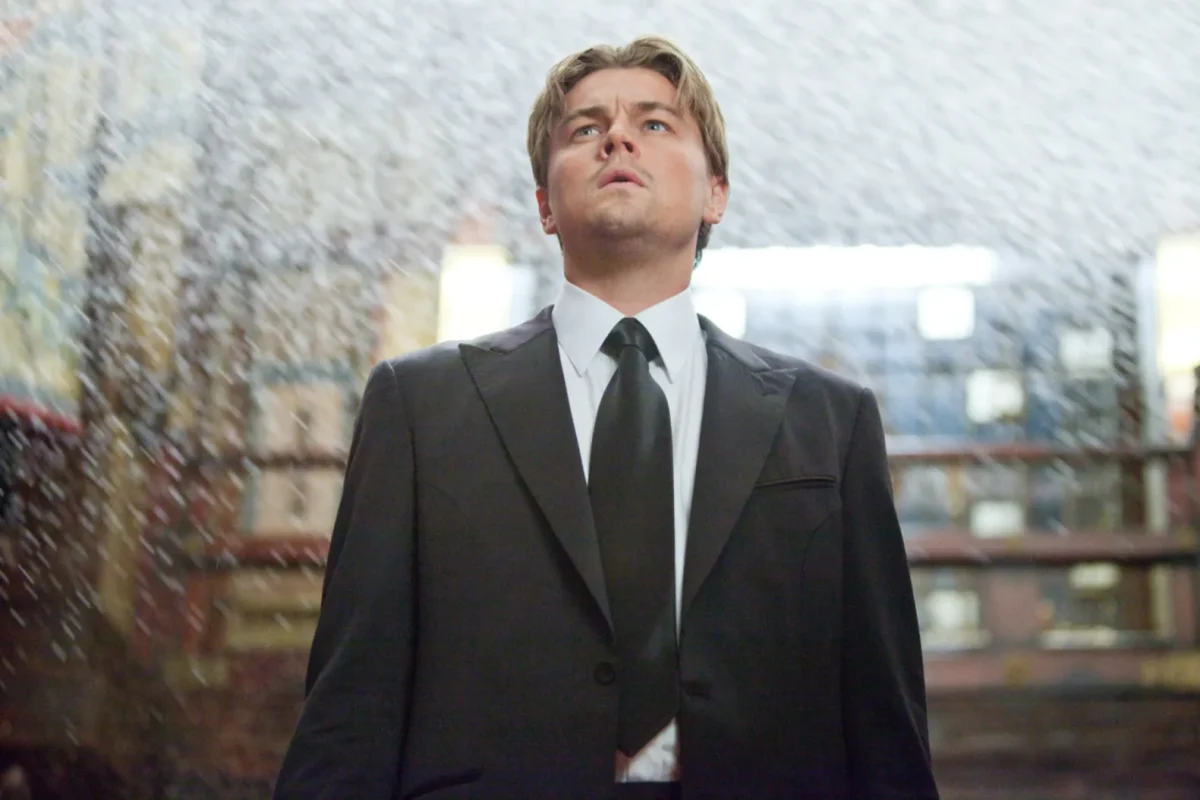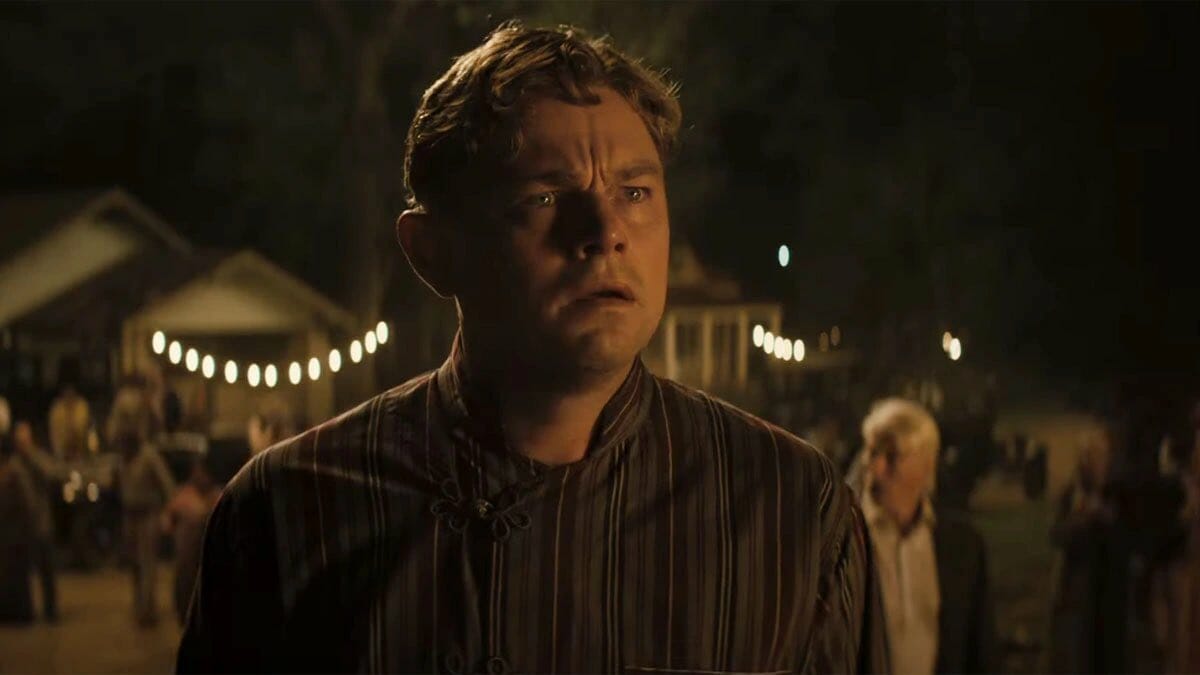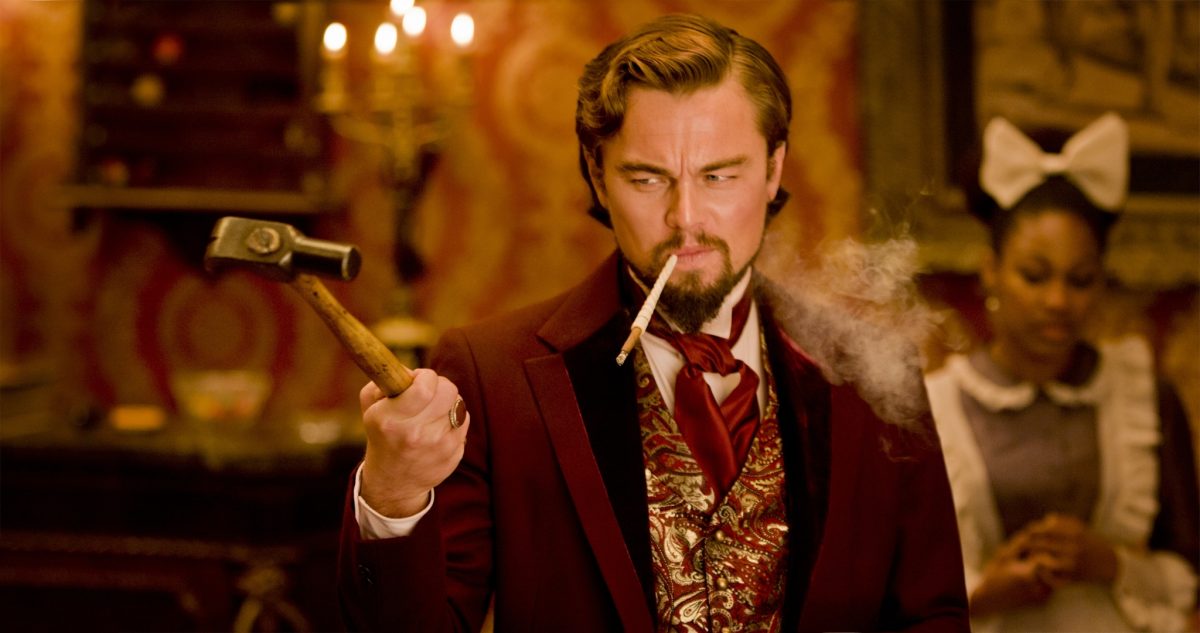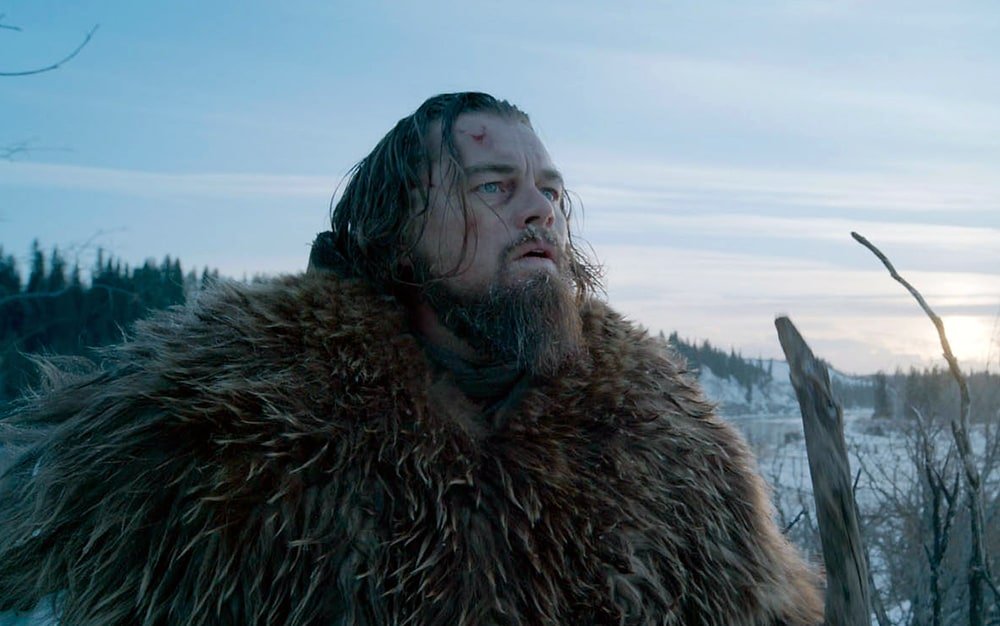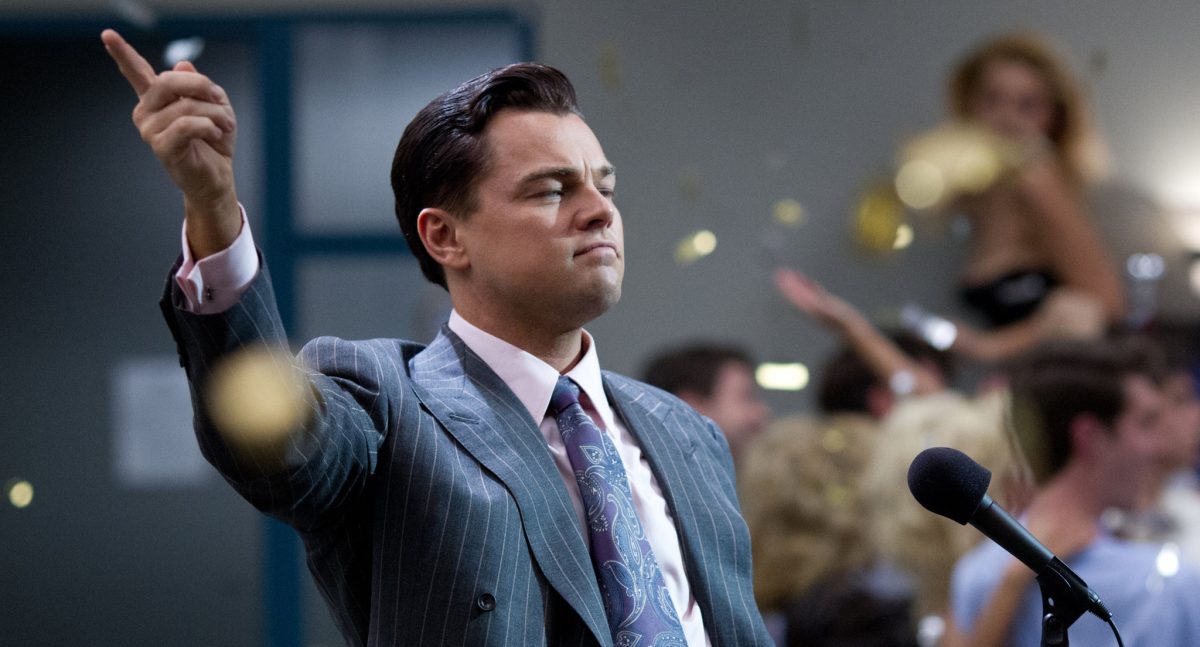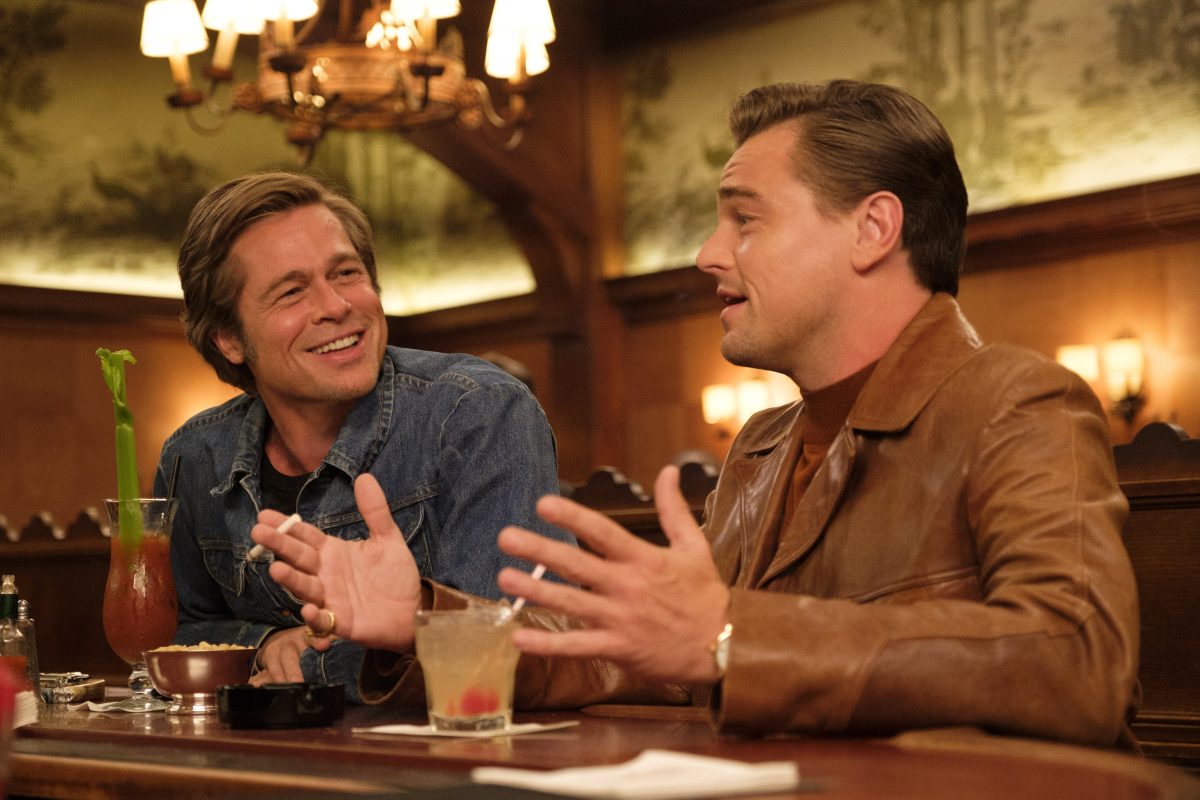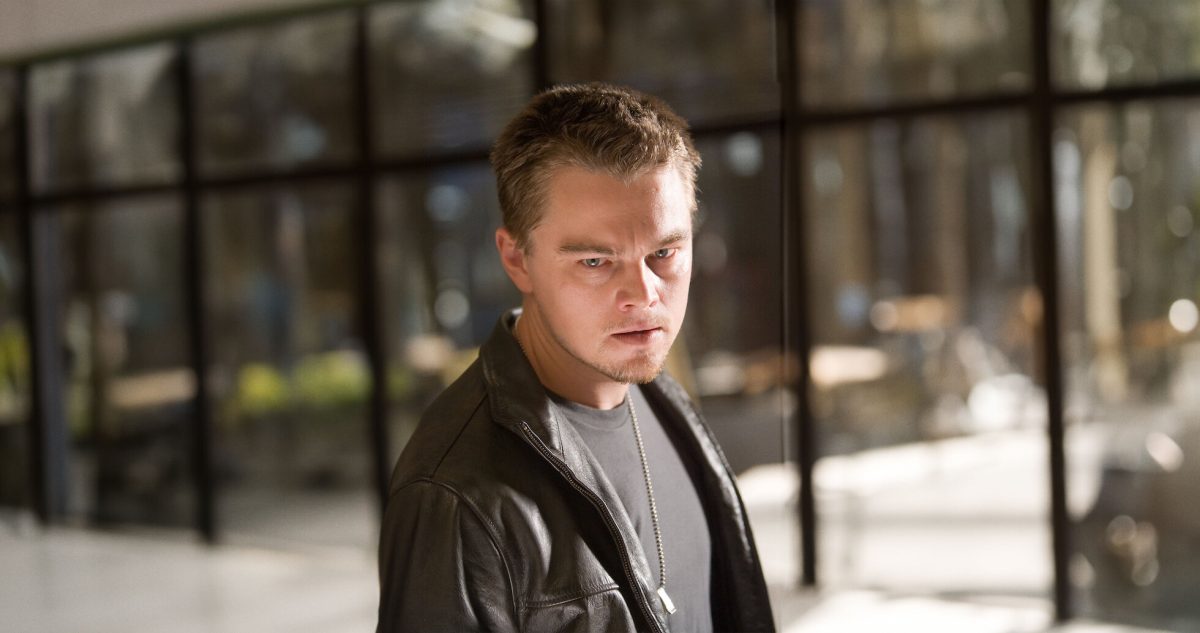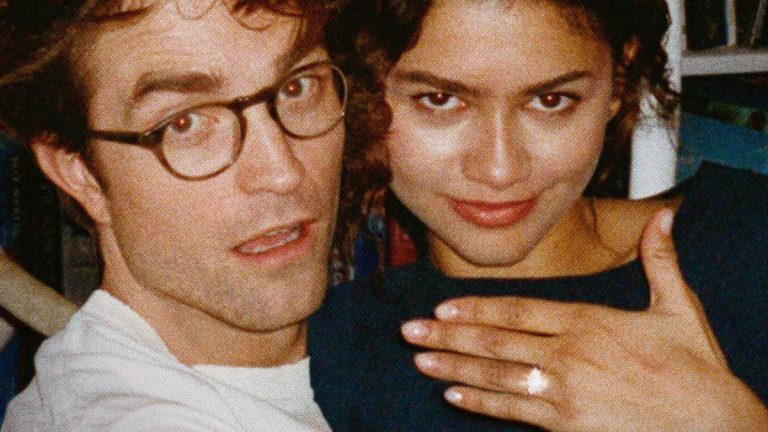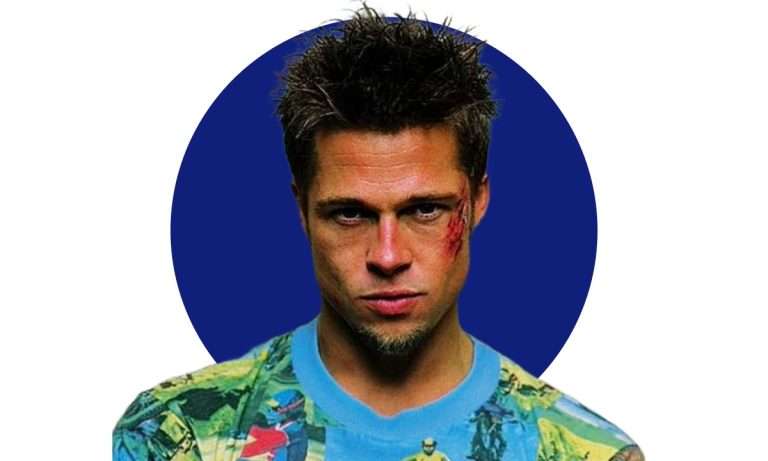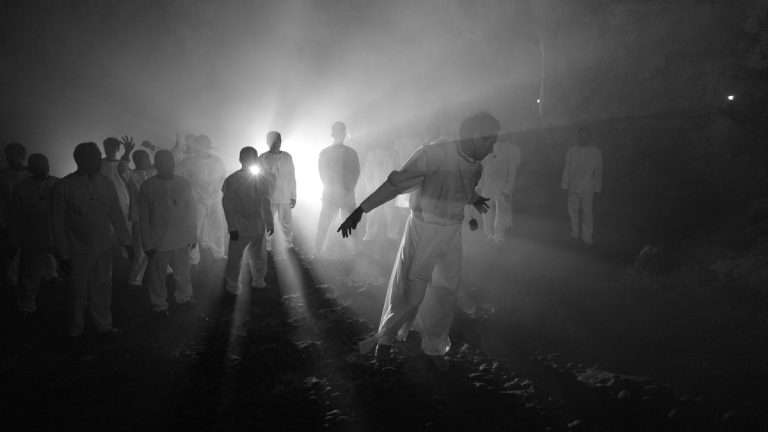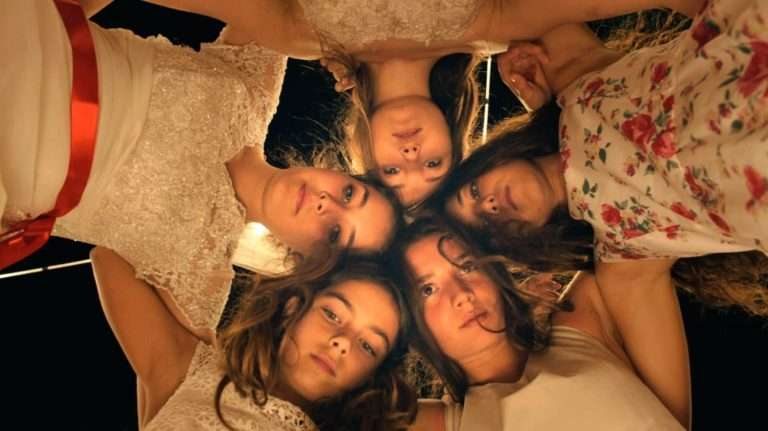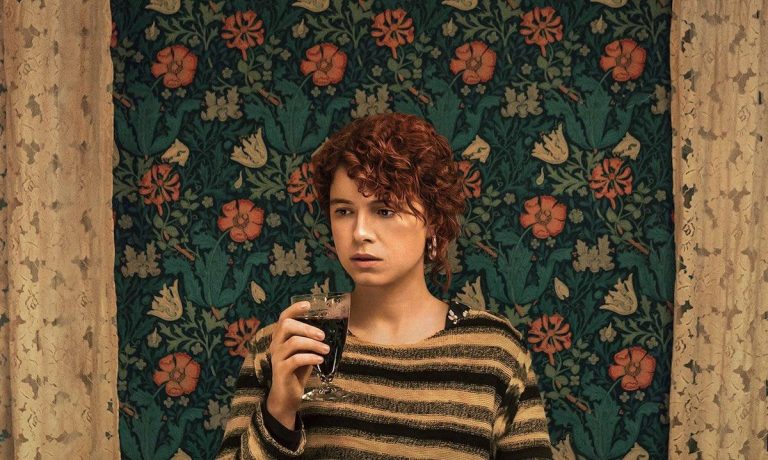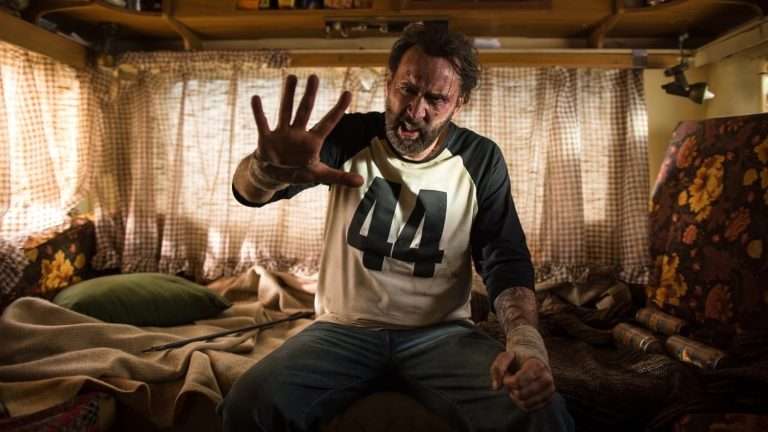Leonardo DiCaprio is the definitive movie star of today, and it’s not even remotely close. Even though DiCaprio has avoided franchises, comic book adaptations, forgettable streaming releases, and prestige television entirely, he’s still able to conjure up anticipation for his upcoming work based on the quality of his choices.
DiCaprio may have worked with more great directors than any other living actor, even when compared to the New Hollywood icons that clearly inspired him. Even when setting aside the directors with films that appear on this list, Leonardo DiCaprio’s collaborators include Ridley Scott, Clint Eastwood, James Cameron, Baz Luhrmann, Lasse Hallström, Edward Zwick, Sam Raimi, Adam McKay, Danny Boyle, Woody Allen, and Randall Wallace, among others.
DiCaprio is a far more accomplished and transformative actor than his most adamant defenders have given him credit for being. Even if he was labeled as a teenage heartthrob in the aftermath of “Titanic” and “Romeo & Juliet,” DiCaprio has been unafraid in playing no shortage of colorful characters, many of which required dramatic transformations. He’s been an action star, a romantic lead, a surprisingly comedy icon, and no shortage of historical icon, and even a few villains.
DiCaprio’s ability to produce and promote challenging, ambitious films for a mainstream audience without ever sacrificing their artistic merit makes him a trailblazer, as it’s clear that he will continue to have relevance as his career reaches its next stage. Although a reunion with Scorsese is in the cards, there have been rumors of potential work alongside other notable auteurs, including Guillermo del Toro, Michael Mann, and David Fincher. Here are the ten best Leonardo DiCaprio films, ranked.
10. Revolutionary Road (2008)
Over a decade after DiCaprio and Kate Winslet brought the box office to new heights with the phenomenon of “Titanic,” they reunited for a far more cutting, cynical drama about the faded dreams of an American couple trapped within the nightmare of suburbia in the 1950s.
DiCaprio was given a chance to show the type of incandescent charm that he had avoided in more austere roles like “Blood Diamond” and “Gangs of New York,” and perfectly captured the appealing optimism of an ambitious young entrepreneur with dreams of traveling the world. The hope and splendor that he seemingly announces to his love interest is gradually, cruelly brought down to Earth as they experience life in the post-war era of exceptionalism.
Although there are sporadic moments of tragedy, the most upsetting aspect of their crumbling marriage is the sheer mundanity of it all. DiCaprio has never been on stage, but his work with the legendary Sam Mendes offers an approximation of what it might be like for him to step into the lights of Broadway.
The patient, meticulous pace that Mendes uses to gracefully watch these characters’ idealism collapse is far more effective than any instances of technical wizardry could hope to be. Even if Leonardo DiCaprio is able to find the ignorant, manipulative side that lurks within a married man, the burst of tragic vulnerability he exposes in the final act of “Revolutionary Road” is a terrific feat of performance that succeeds in once again challenging viewers to empathize with characters whose anxiety feels palpable.
9. Inception (2010)
DiCaprio made a bold return to blockbuster cinema when he was enlisted by Christopher Nolan to star in “Inception,” an ambitious science fiction thriller that examined the interiority of the subconscious. In some ways, this is the definitive “movie star” role that DiCaprio had been waiting for since “Titanic;” he’s a collected, brilliant expert in a dangerous craft, and often carries himself with the swagger and meticulousness of Old Hollywood stars like Gary Cooper or Steve McQueen.
However, “Inception” also indicated that DiCaprio was capable of adding a component of human drama into a film with larger-than-life ideas, as Cobb’s desire to return home to his children and escape the ghost of his wife Mal (Marion Cotillard) added a new dimension to “Inception” that made it more approachable.
Although Leonardo DiCaprio is childless and has never been married, he has somehow become one of the most successful “movie dads” of his generation, as “Inception” reached a point where he could play a middle-aged character concerned about the legacy that he would leave behind for his children.
“Inception” often feels like a magic trick due to the careful plotting Nolan uses to visualize each of his ideas, and DiCaprio is remarkably willing to share the screen with larger-than-life co-stars, as both Tom Hardy and Joseph Gordon-Levitt experience significant career boosts as a result of their work in the film. “Inception” ends with a moment of emotional nuance that results from DiCaprio’s wholesome, vulnerable performance, which offers further proof that Nolan is a far more sentimental storyteller than he is often given credit for.
Dig Deeper: Inception Movie Explained: Seeking the Indelible Truth of Life
8. Killers of the Flower Moon (2023)
“Killers of the Flower Moon” may have been the sixth collaboration between DiCaprio and Scorsese, but it was also the most challenging and unappealing role he’d ever been tasked with. Few Hollywood stars are willing to be morally reprehensible onscreen, something DiCaprio has had no fear of doing with “Django Unchained” and “The Wolf of Wall Street.” However, the World War I veteran Ernst Burkhart isn’t as much a mustache-twirling villain as he is a cowardly, hapless bystander who watches as a genocide is committed within close proximity.
Whether he actually fell in love with his wife Mollie (Lily Gladstone) is often unclear, as Ernst’s regrets seem only to come after he’s found himself deep within the consequences of his passiveness. However, Ernst is ultimately a stooge of his uncle William Hale King (Robert De Niro), a far more overt villain whose intelligence has made him lethal. Comparatively, Ernst is made to represent the silent majority that stood silent as violence was committed, a theme that has become even more relevant in the wake of the film’s release.
DiCaprio was able to yield his star power to Gladstone, whose breakthrough performance was rightfully heralded as one of the best to ever come from a Scorsese film. It also offered him a reunion with De Niro, whom he had worked with as a child actor in the underrated coming-of-age drama “This Boy’s Life” and the mediocre yet entertaining Woody Allen film “Celebrity.” It’s fitting to see Scorsese’s two great collaborators united for such a reflective, important film.
7. Django Unchained (2012)
There’s a rare class of actors who are capable of delivering the dialogue of Quentin Tarantino in a way that complements the stylized, operatic approach he takes to storytelling, which may explain why he often selects from a pool of recurring stars. However, DiCaprio proved himself worthy of being within that company when he gave what may have been his most fearless performance ever in “Django Unchained.”
American cinema has never truly properly reckoned with slavery, and none of the genre components of “Django Unchained” can detract from its powerful depiction of one of the most evil aspects of human history. With the character of Calvin Candie, Leonardo DiCaprio was tasked with taking a similar approach to what Christoph Waltz did with his memorable performance as Colonel Hans Landa in Tarantino’s previous film, “Inglourious Basterds.” He’s sadistic, committed, and so eloquent in his demeanor that his flashes of unhinged madness still land with a shock.
Although it’s a more intimate and grounded narrative when compared to Tarantino’s other films, “Django Unchained” explodes with energy whenever its four leads share the screen together; DiCaprio and Samuel L. Jackson offer a bitter, self-absorbed mirror to the heroic duo of Waltz and Jamie Foxx. It was surprisingly Waltz, not DiCaprio, who earned the Oscar for Best Supporting Actor for “Django Unchained,” as both he and Jackson were snubbed entirely. Perhaps, awards voters were cautious about supporting such a malevolent depiction of evil. DiCaprio’s only issue is that he was simply too good at his job.
Did You Know?: 10 Facts You Probably Didn’t Know About Django Unchained
6. Catch Me If You Can (2002)
“Catch Me If You Can” is based on a true story so seemingly absurd that it makes sense that a dreammaker like Steven Spielberg would be the only one capable of bringing it to life. While Spielberg has earned no shortage of praise for the extraordinary work within blockbuster and historical cinema he accomplished within the first decades of his career, there’s a compelling argument to be made that his filmography grew even more experimental and thought-provoking in the 21st century.
“Catch Me If You Can” offers a dark side to the story of “lost boys” that couldn’t grow up, seen in previous Spielberg efforts like “Hook,” “E.T. the Extra Terrestrial,” and “Empire of the Sun.” Leonardo DiCaprio’s Frank Abagnale Jr. is a walking contradiction. He’s capable of inventing personas and entire lives out of thin air, but he has to torment his FBI pursuer (Tom Hanks) on Christmas because he has no one else to call.
DiCaprio’s pure charisma is on full display as the younger Abagnale explores the possibilities that come with feigning expertise. Even if there are enough set pieces to make any Spielberg fan’s heart content, “Catch Me If You Can” hints at the more tragic place that the story will reach, thanks to his terrific moments with Christopher Walken, who plays his father.
Interestingly, “Catch Me If You Can” was released the same year as “Gangs of New York,” DiCaprio’s first collaboration with Scorsese. While their partnership has been nothing but rewarding for film fans, it is interesting to consider what DiCaprio’s career would have looked like had he chosen to continue his efforts with Spielberg.
5. One Battle After Another (2025)
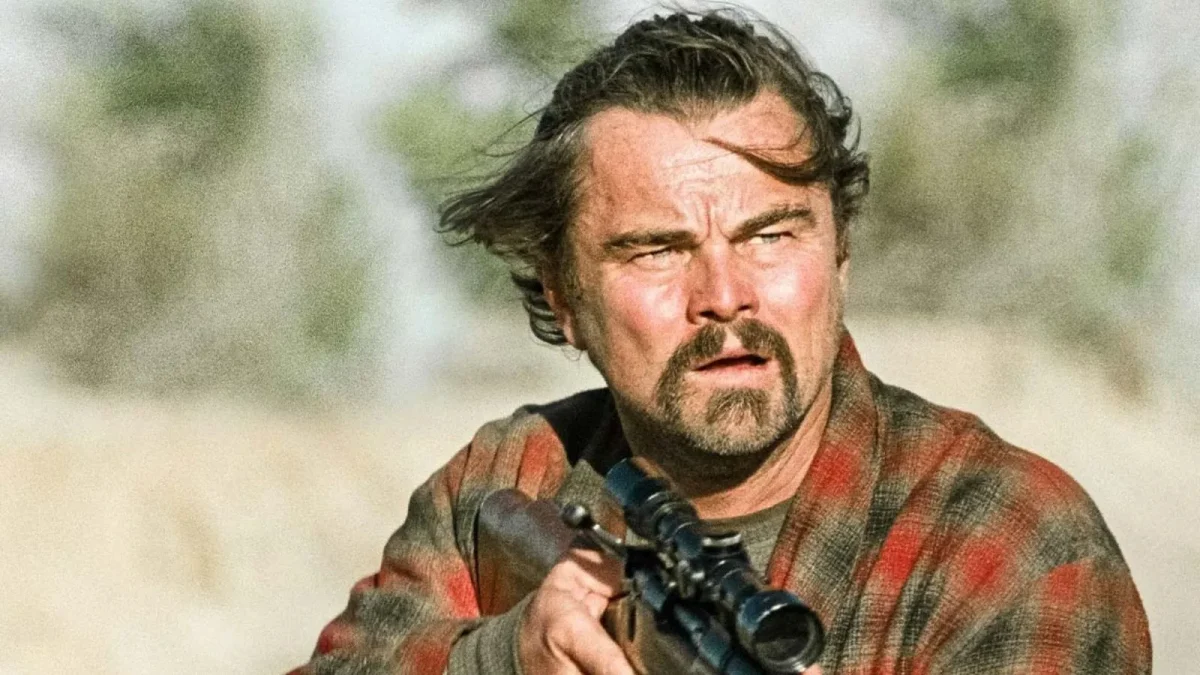
“One Battle After Another” marked the much-anticipated first collaboration between DiCaprio and Paul Thomas Anderson. Although it seemed inevitable that the most exciting actor of the last three decades would want to work with the most acclaimed filmmaker since the ‘90s, few would have expected “One Battle After Another” to take the form that it did.
The film is a rousing, exhilarating epic that pays tribute to both John Ford and James Cameron. “One Battle After Another” casts DiCaprio in the fascinating role of the former revolutionary Bob Ferguson, who has watched life pass him by as his daughter Willa (Chase Infiniti) grows up to reckon with her lineage and find her place within a growing resistance group. Leonardo DiCaprio is a sad sack with a heart of gold, delivering a performance with the wholesome goofiness of Elliot Gould in “The Long Goodbye” or Jeff Bridges in “The Big Lebowski.”
DiCaprio seemed to understand what Bob represented. His heart is in the right place, and simply being there to support his daughter is as important as any of the heroic acts he achieved (or fell short of) when he was younger. DiCaprio graciously allows Infiniti to take hold of the film’s most exhilarating moments, but he also shows a brilliance in physical comedy that no one would have expected from him decades prior. “One Battle After Another” is one of the few undeniable masterpieces to have emerged from the young decade, but it’s also an inspiring indication that DiCaprio is only getting better with age.
Related Read: 10 Best Sean Penn Movie Performances, Ranked
4. The Revenant (2015)
The outcry over DiCaprio’s lack of accolades from the Academy Award reached a fever pitch in the early 2010s, not seen since the days before Al Pacino won his first trophy for “Scent of a Woman.” The difference is that Pacino’s victory was a clear “career award” given to represent the accomplishments of his entire filmography (even if the film itself was unremarkable), whereas DiCaprio’s role in “The Revenant” seemed to challenge everything about his star persona. He’s a sorrowful, emotionally guarded man of action who is subjected to unbearable physical torment, which becomes unnoticeable when compared to the unimaginable emotional loss he suffers in the immediate aftermath.
“The Revenant” is as straightforward a revenge epic as it can get, but the tranquility with nature that Alejandro Gonzalez Inarritu accomplished with his best film yet transformed the simple story into a moving story of rebirth and recovery. Leonardo DiCaprio’s ability to become unrecognizable may have won him both praise and attracted some playful teasing, but the success of his work in “The Revenant” is the result of the soul-searching emptiness he found within the character of Hugh Glass.
Revenge is often an empty process that only leaves its participants more embittered, yet it also gives Glass a will to live as he stumbles through the chaos and desecration of the American frontier. It’s odd to see that “The Revenant” has become more divisive in the years since DiCaprio won his Oscar, but it offered a transcendent cinematic experience that was unmissable for fans of ambitious auteur cinema.
3. The Wolf of Wall Street (2013)
“The Wolf of Wall Street” almost speaks for itself at this point, as it solidified the fact that DiCaprio was just as worthy of a collaborator to Scorsese as De Niro, and that the Oscar-winning filmmaker was still capable of delivering masterpieces like “Goodfellas,” “Taxi Driver,” and “Raging Bull” towards the end of his career.
The film feels like a spiritual successor to many of Scorsese’s past works. It hints at the seductive nature of crime within “Goodfellas,” the collapse of an American industry from “Casino,” the fraudulent power of charisma from “The King of Comedy,” the irrational male anxiety of “After Hours,” and even the madcap genius of “The Aviator.” Jordan Belfort is the most despicable movie character that people ended up falling in love with. The fact that some have viewed the film as an inspirational tale in which Leonardo DiCaprio plays a hero seems to indicate that Scorsese made all the right points with his masterful satire.
The scale of “The Wolf of Wall Street” is almost as astounding as its debauchery. DiCaprio is tasked with playing a meager, unassuming trader who rises through the ranks to become the most scandalous tycoon in New York history. Even if he played an anti-hero worthy of Travis Bickle or Jake LaMotta, DiCaprio also showed the type of shameless, wild physical comedy that had only been enacted by comedy icons like Will Ferrell, Jim Carrey, and Mike Myers. “The Wolf of Wall Street” is more timely than ever, and may be the most purely enjoyable film that either Scorsese or DiCaprio has ever made.
Do Check Out: The 15 Best Martin Scorsese Pictures
2. Once Upon a Time in Hollywood (2019)
It seemed like a perfect match for material that Tarantino would make a film celebrating the last days of the “Golden Age of Cinema” before the studio system collapsed and the horrific murder of Sharon Tate ushered in a different era at the end of 1969. However, “Once Upon a Time in Hollywood” proved to be a far more thoughtful, humorous, and moving work of reflection than anyone would have expected from the most provocative filmmaker of his generation.
Beyond being a love letter to an era that was destined to end, “Once Upon a Time in Hollywood” offers a restorative history to the figures who were overwhelmed by the changing times. Leonardo DiCaprio gives one of his most emotionally vulnerable, yet incandescently funny performances as the fading star Rick Dalton, whose friendship with his stunt double Cliff Booth (Brad Pitt) is the only thing keeping him afloat.
Although Rick’s occasional dismissiveness of Cliff’s issues is at times amusing, the genuine warmth within the relationship between two flawed men is among the most sincere things that Tarantino has ever pulled off. The same could be said for Rick’s crisis of confidence, as it takes a wholesome moment with a young actress (Julia Butters) to remind him of why he became a performer in the first place. It’s a funny, often self-depiracting role that could certainly be seen to represent various notable stars of the era, but DiCaprio’s performance is a singular one, as he got to play the rare good guy who comes out on top.
1. The Departed (2006)
Scorsese’s exhilarating remake of an international crime trilogy was instantly heralded as the new American masterpiece, and that reputation hasn’t faded in the nearly two decades since “The Departed” first took the industry by storm. It’s in conversation with the gangster epics that Scorsese built his career on, but it’s also a thrilling double act told from both sides of the law, showing how strangely similar their paths may have been.
Although Scorsese has had many impressive ensembles within his career, “The Departed” is nearly unparalleled in its ability to get brilliant, unique performers to act outside their comfort zone. Mark Wahlberg’s foul-mouthed sergeant, Jack Nicholson’s scenery-chewing gangster, Matt Damon’s traitorous cop, and Alec Baldwin’s infuriated captain are all wonderful, but it’s the righteous fury of DiCaprio’s undercover mole that allows “The Departed” to move with such momentum.
The focus on the complex machinations of the conspiracies and betrayals within “The Departed” doesn’t take away from the surprisingly poignant character work, as Leonardo DiCaprio’s chemistry with Vera Farmiga reaches a fascinating, yet rewarding place by the time the story wraps up. “The Departed” was released the same year that DiCaprio starred in “Blood Diamond,” an ambitious action thriller that featured some of his strongest accent work and physical transformations. “Blood Diamond” may have earned him an Oscar nomination, but “The Departed” showed an untapped ability by DiCaprio to disappear within a character. Although DiCaprio’s career is literally packed with masterpieces that will be remembered for many years to come, “The Departed” is and remains an undeniable modern classic.


